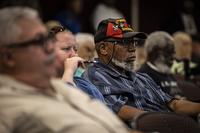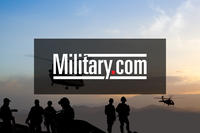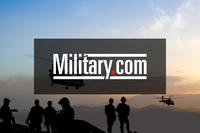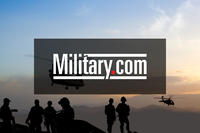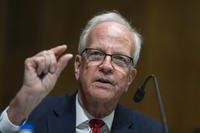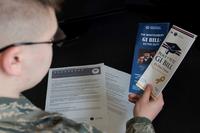Dear Sgt. Shaft,
Why does it take so long for eligible deceased veterans and/or their spouses to be buried at Arlington Cemetery?
Concerned Spouse
Via the Internet
Dear Concerned,
I posed your question to the folks at Arlington Cemetery and received the following reply:
Arlington National Cemetery, our nation's most hallowed ground, is the final resting place for more than 400,000 active duty service members, veterans and their families. Families come from all over the country to bury their loved ones at Arlington National Cemetery. They come to Arlington because of the rich history of military honors that makes the service so special. We believe that caring for our nation's heroes and their families during their time of need is a sacred duty entrusted to us. Our nation's veterans are laid to rest with dignity and honor at Arlington National Cemetery by a compassionate and dedicated work force.
Arlington National Cemetery schedules services based on available resources for casketed and cremated remains. On average, Arlington National Cemetery conducts between 27 to 30 funeral services each week day, eight of which are services with full military honors. There are up to six committal services an hour, five times a day at Arlington National Cemetery. We receive approximately 35 new requests a day to schedule a service at Arlington National Cemetery. This is in addition to requests for information and changes for services that we are working to schedule. Requests for chapel services can extend the wait time by two months for a service at Arlington National Cemetery. To expedite the scheduling process, we recommend requesting the use of the chapel only if a funeral service has not been conducted.
Tips for scheduling services at Arlington National Cemetery:
- Have all of the required documentation together before you call to schedule. The required documentation is
- DD214 or equivalent service documentation showing honorable discharge and active duty service (Mandatory for a veteran; second interment of spouse does not require this if Arlington can verify the veteran's eligibility from historic archived records)
- Death certificate
- Cremation certificate if applicable
- Succession documents for the Person Authorized to Direct Disposition to act on behalf of the Primary Next of Kin if applicable. Only the Primary Next-of-Kin or person authorized can sign the required documents.
- Provide a point of contact with telephone and an e-mail address for the Primary Next-of-Kin or Person Authorized for Direct Disposition will you call to schedule.
- If the family is requesting a specific date for their service after their loved one has passed, we recommend contacting Arlington four months prior to the desired interment date.
- If the decedent is being interred with someone already at Arlington National Cemetery, please provide the section and grave number for in-ground gravesites and court, section, column and niche for above-ground interments.
Shaft Notes
• The Department of Veterans Affairs (VA) and the White House Rural Council today announced the award of eight grants, totaling $815,051.50, which will improve access to health care for Veterans living in highly rural areas. The grants will assist over 11,000 Veterans in 7 states and 56 counties by providing up to $50,000 per highly rural area to fund transportation services for Veterans to and from VA medical centers and other facilities that provide VA care. The grants are part of a program authorized by Congress to help state Veterans Service Agencies (SVSAs) and Veterans Service Organizations (VSOs) operate or contract for transportation services to transport Veterans to VA medical centers and other facilities that provide VA care.
In July 2013, VA began accepting applications for grants to help state Veterans Service Agencies and VSOs operate or contract for transportation services to transport Veterans to VA medical centers and other facilities that provide VA care. A new regulation establishes the program that will administer these grants. Transportation will be provided at no cost to Veterans. "VA is committed to ensuring that all Veterans, including those who live in rural and remote areas, have access to the health care they have earned through service to our country," said Acting Secretary of Veterans Affairs Sloan D. Gibson. "These grants will play a critical role in expanding access to VA healthcare for Veterans." Organizations awarded the grants include:
- Virginia Department of Veteran Services ($8,825.00 for one county in VA.) approximately benefiting over 89 Veterans;
- American Legion Post 20 ($49, 764.00 for one county in S.D.) approximately benefiting 1,507 Veterans;
- Veterans of Foreign Wars Post 8988 ($80,000.00 for two counties in CA.) approximately benefiting 849 Veterans;
- Nevada Department of Veteran Affairs ($46,850.00 for one county in Nevada) approximately benefiting 1,285 Veterans;
- Veterans of Foreign Wars Post 7202 ($150,000.00 for 13 counties in far west Texas) approximately benefiting 1,579Veterans;
- Washington State Department of Veterans Affairs ($100,000.00 for two counties) approximately benefiting 1,756 Veterans; and
- North Dakota Department of Veterans Affairs ($379, 612.50 for 36 counties in N.D.) approximately benefiting 5,477 Veterans.
The Sarge joins The Military Officers Association of America (MOAA) in urging Congress to create a high-level commission to set the groundwork for making necessary reforms to modernize and improve Veterans Health Administration (VHA) healthcare. The commission’s focus would be to find potential long-term recommendations that may assist Bob McDonald and his staff in reshaping the VHA.
“The recent Nabors report and its findings cries out for outside thinking to help reinforce the VHA leadership’s strong desire to change the culture and restructure and reform the VHA,” MOAA President Vice Adm. Norb Ryan said.
White House Deputy Chief of Staff for Policy Rob Nabors’ June 27 VHA report echoed many of the sentiments expressed in MOAA’s May 16 letter to the administration on the issue.
• Send letters to Sgt. Shaft, c/o John Fales, P.O. Box 65900, Washington, D.C. 20035-5900; fax 301/622-3330, call 202/257-5446 or email sgtshaft@bavf.org.
